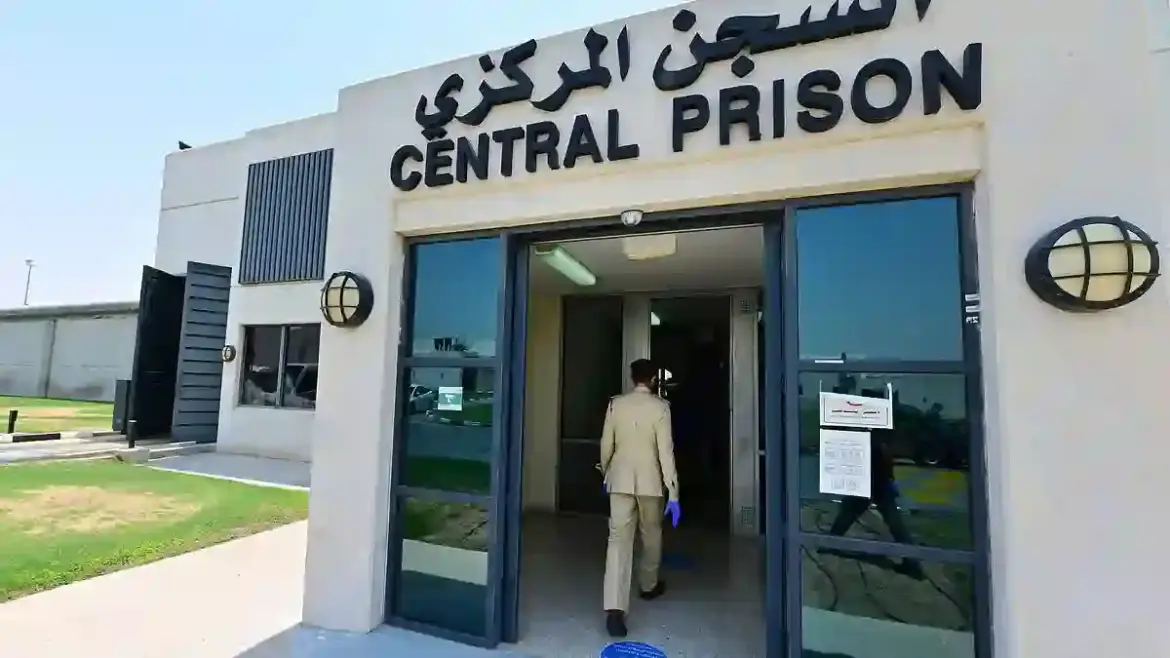For Mia O’Brien, a 23-year-old from Liverpool, what started as a single mistake has spiraled into a life-altering ordeal.
She is currently being held in Al-Awir Central Prison in Dubai, a facility that has earned a fearsome reputation among former inmates and the media, often dubbed “the Middle East’s Alcatraz.”
Mia’s case began when she was caught with 50 grams of cocaine, a charge that has reportedly led to a life sentence.
Her mother, Danielle McKenna, describes the situation as a devastating shock.
“She’s just 23 and has never done a bad thing in her life,” Danielle told the Daily Mail.
“She went to university to study law, got involved with the wrong people, and made a very stupid mistake. Now she’s paying the price.”
Al-Awir Central Prison’s Fearsome Reputation
Al-Awir Central Prison houses both male and female inmates and sits roughly 30 kilometers from Dubai’s glittering hotels and shopping malls.
Former British prisoners paint a harrowing picture of life inside.
Karl Williams, who served time there in 2012 for drugs possession, described beatings, unchecked violent brawls, and even torture during police interrogations, calling the prison “the Alcatraz of Dubai.”
He alleges that some prison wards were run by Russian gangsters who used HIV-positive inmates to inflict harm on others.
Karl also recounted having his testicles electrocuted during an interrogation—a detail he shared in a memoir following his release.
Human Rights Concerns
Reports from Human Rights Watch and testimonies from other former inmates raise serious concerns about conditions in the prison.
HIV-positive prisoners have reportedly been denied medication for months, and some have been coerced into signing documents in Arabic at gunpoint.
A British football coach jailed over cannabis-laced vape liquid also described witnessing torture and seeing prisoners left to die from illness.
Dubai authorities, however, deny all allegations of mistreatment or misconduct.
The Legal Stakes in the UAE
Drug offences in the UAE are treated with extreme severity.
The UK Foreign and Commonwealth Office warns that possession—even residual amounts of substances like cannabis—can result in minimum three-month prison sentences or hefty fines.
Trafficking charges may carry life sentences or even the death penalty in certain cases.
The FCDO states, “There is zero tolerance for drugs-related offences,” emphasizing the strict enforcement at airports and throughout the country.
Family Pleas and Fundraising Efforts
Danielle McKenna has launched a fundraising campaign to cover Mia’s legal costs, hoping to secure her daughter’s release.
“She’s just been transferred to another prison after receiving a life sentence,” Danielle explained.
“It’s been a massive shock, and we’re trying to support her as best we can.”
The UK government is actively supporting Mia’s family and has confirmed ongoing contact with the UAE authorities.
Harsh Laws Affecting Foreign Visitors
Mia’s case is not isolated. Other young Britons have faced harsh penalties in Dubai for infractions that may seem minor back home.
For example, Marcus Fakana, 19, was jailed for a consensual relationship with a fellow UK tourist who was under 18, highlighting how UAE laws can criminalize personal relationships and disproportionately impact foreigners.
He was eventually released after a royal pardon from Dubai’s ruler.
These incidents underscore the UAE’s strict legal environment and serve as a cautionary tale for visitors navigating unfamiliar laws abroad.
